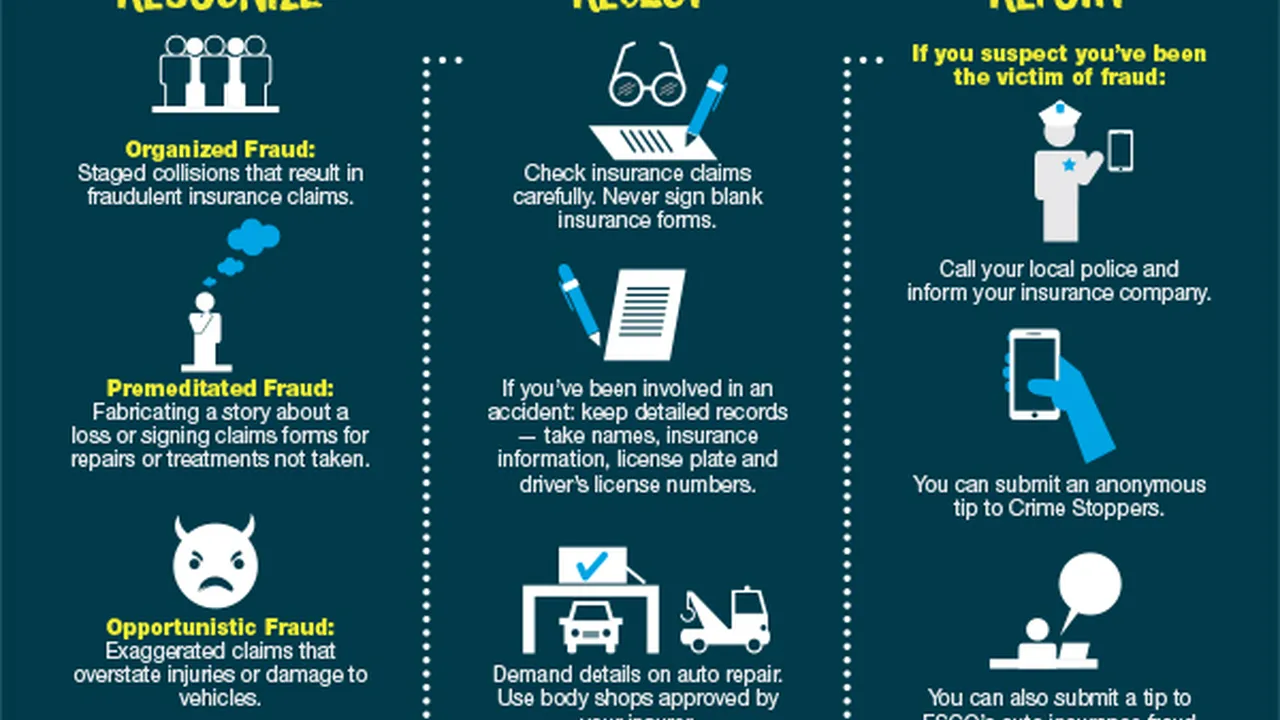Health Insurance Appeals_ How to Fight a Denied Claim

Understanding Health Insurance Claim Denials A Comprehensive Guide
Navigating the world of health insurance can feel like traversing a labyrinth. You pay your premiums, dutifully visit your doctor, and then… your claim gets denied. It’s frustrating, confusing, and unfortunately, quite common. But don’t despair. Understanding why claims are denied and knowing how to effectively appeal those denials is a crucial skill in today’s healthcare landscape. This guide will walk you through the process, offering insights, strategies, and specific examples to empower you in your fight for coverage.
Why Health Insurance Claims Get Denied Common Reasons Explained
Before diving into the appeal process, let's understand the common culprits behind claim denials. Knowing the 'why' is the first step in formulating your 'how'.
- Lack of Medical Necessity: This is a frequent reason. Insurers might argue that the service or treatment wasn't medically necessary based on their interpretation of your plan's coverage and your medical records.
- Pre-authorization Issues: Many plans require pre-authorization for certain procedures or medications. Failing to obtain this pre-approval before the service can lead to denial.
- Coverage Limitations: Your plan may simply not cover the specific service or treatment you received. This could be due to exclusions in your policy or limitations on the number of visits or treatments allowed.
- Coding Errors: Mistakes in coding the service or procedure can trigger a denial. This could be an incorrect CPT code (Current Procedural Terminology) or ICD-10 code (International Classification of Diseases, Tenth Revision).
- Out-of-Network Providers: Using providers outside your insurance network often results in higher out-of-pocket costs or, in some cases, complete denial of coverage.
- Missing Information: Incomplete or inaccurate information on the claim form can lead to a denial. This includes missing diagnosis codes, inaccurate patient information, or lack of supporting documentation.
- Policy Lapses: If your insurance policy was not active at the time of service, the claim will be denied. This could be due to non-payment of premiums or a change in coverage.
The Health Insurance Appeal Process A Step-by-Step Breakdown
The health insurance appeal process typically involves several stages. Understanding each step is crucial for a successful appeal.
Step 1 Review the Explanation of Benefits (EOB) and Denial Letter
The EOB (Explanation of Benefits) is a statement from your insurance company that outlines the charges submitted, the amount paid, and the reason for any denial or reduction in payment. The denial letter will provide more specific details about why your claim was denied. Carefully review both documents to understand the exact reason for the denial.
Look for specific codes or phrases that indicate the reason for denial. For example, "Not Medically Necessary," "Pre-authorization Required," or "Exceeds Benefit Maximum."
Step 2 Gather Supporting Documentation
This is where you build your case. Gather all relevant documents that support your claim. This may include:
- Medical Records: Obtain copies of your medical records from your doctor or other healthcare provider. These records should clearly document the medical necessity of the service or treatment.
- Doctor's Letter of Support: Ask your doctor to write a letter explaining why the service or treatment was medically necessary and how it benefits your health. This letter should be specific and detailed, addressing the reasons cited in the denial letter.
- Relevant Research Articles: If the denial is based on the insurer's interpretation of medical necessity, provide research articles or clinical guidelines that support the effectiveness of the treatment.
- Pre-authorization Documentation: If pre-authorization was required, provide documentation showing that you obtained it.
- Your Insurance Policy: Review your insurance policy to understand your coverage and any exclusions or limitations that may apply.
- Itemized Bills: Ensure you have itemized bills from the provider that clearly list all charges.
Step 3 File an Internal Appeal
This is the first level of appeal within your insurance company. Follow the instructions in the denial letter for filing an internal appeal. Typically, you will need to submit a written appeal, along with all supporting documentation, within a specific timeframe (usually 60 to 180 days from the date of the denial).
Your written appeal should be clear, concise, and persuasive. Explain why you believe the claim should be paid, addressing each of the reasons cited in the denial letter. Use specific examples and cite supporting documentation to strengthen your argument. Be polite but firm.
Example of a persuasive appeal statement: "The denial letter states that the physical therapy sessions were not medically necessary. However, as documented in Dr. Smith's letter (attached), these sessions were crucial for regaining mobility after my knee surgery and preventing further complications. Research published in the Journal of Orthopedic Rehabilitation (also attached) supports the effectiveness of physical therapy for post-operative recovery in patients with similar conditions."
Step 4 File an External Appeal
If your internal appeal is denied, you have the right to file an external appeal with an independent third party. This is a crucial step, as the external reviewer has no vested interest in the outcome of the appeal. The external reviewer will make a determination based on the medical necessity of the service or treatment and the terms of your insurance policy.
The process for filing an external appeal varies depending on your state and the type of insurance plan you have. Typically, you will need to submit a request for external review to your insurance company, who will then forward your case to the independent reviewer.
Important Considerations for External Appeals:
- Deadlines: Pay close attention to the deadlines for filing an external appeal. Missing the deadline will result in your appeal being rejected.
- Choosing an External Reviewer: In some cases, you may have the option to choose the external review organization. Research the different organizations and select one with a strong reputation and expertise in the type of claim you are appealing.
- Preparing Your Case: The external reviewer will rely on the information you provide to make their decision. Ensure that your case is well-organized, complete, and persuasive.
Step 5 Consider Legal Action
If your external appeal is denied, you may have the option to pursue legal action against your insurance company. This is a significant step and should be considered carefully, as it can be costly and time-consuming. Consult with an attorney specializing in health insurance law to determine if legal action is appropriate in your case.
Specific Health Insurance Products and Their Appeals Processes
The specific steps and regulations surrounding health insurance appeals can vary depending on the type of insurance plan you have. Here’s a brief overview of some common types of plans and their associated appeal processes:
Employer-Sponsored Health Insurance Plans
Most employer-sponsored health insurance plans are governed by the Employee Retirement Income Security Act (ERISA). ERISA sets minimum standards for employee benefit plans, including health insurance. ERISA requires that plans have a process for appealing denied claims, including both internal and external appeals. You are generally entitled to an external review if your internal appeal is denied. The Department of Labor provides resources and information on ERISA and your rights as a participant in an ERISA-covered health plan.
Individual Health Insurance Plans (Marketplace Plans)
Individual health insurance plans purchased through the Health Insurance Marketplace (also known as Obamacare) are subject to the Affordable Care Act (ACA). The ACA provides strong consumer protections, including the right to appeal denied claims. You are entitled to both internal and external appeals. The ACA also requires that states have an external review process that meets federal standards.
Medicare
Medicare has its own appeals process, which is separate from the processes for employer-sponsored and individual health insurance plans. The Medicare appeals process has five levels:
- Redetermination: You file a request with the Medicare contractor that made the initial determination.
- Reconsideration: You file a request with an independent Qualified Independent Contractor (QIC).
- Administrative Law Judge (ALJ) Hearing: You request a hearing with an ALJ if the amount in controversy meets a certain threshold.
- Medicare Appeals Council Review: You request a review by the Medicare Appeals Council if you disagree with the ALJ's decision.
- Federal Court Review: You can file a lawsuit in federal court if you disagree with the Medicare Appeals Council's decision and the amount in controversy meets a certain threshold.
Medicaid
Medicaid is a state-administered program that provides health coverage to low-income individuals and families. The Medicaid appeals process varies by state, but all states are required to have a process for appealing denied claims. You typically have the right to a hearing before an impartial hearing officer if your claim is denied.
Health Insurance Appeal Letter Template A Sample You Can Use
Crafting a compelling appeal letter is crucial. Here’s a template you can adapt to your specific situation:
[Your Name]
[Your Address]
[Your Phone Number]
[Your Email Address]
[Date]
[Insurance Company Name]
[Insurance Company Address]
Subject: Appeal of Claim Denial - [Claim Number] - [Patient Name]
Dear [Claims Department/Appeals Department],
I am writing to appeal the denial of claim [Claim Number] for services rendered to [Patient Name] on [Date of Service]. I received a denial notice on [Date of Denial] stating that the claim was denied because [State the reason for denial as stated in the denial letter].
I respectfully disagree with this denial and believe that the claim should be paid for the following reasons:
- [Clearly explain why you believe the service was medically necessary. Provide specific details and examples.]
- [Reference supporting documentation, such as medical records, doctor's letters, and research articles.]
- [Address any specific concerns raised in the denial letter.]
- [If applicable, explain why pre-authorization was not obtained or why an out-of-network provider was used.]
I have attached the following documentation to support my appeal:
- [List all attached documents, such as medical records, doctor's letters, research articles, and itemized bills.]
I urge you to reconsider your decision and approve this claim for payment. I am confident that the documentation provided demonstrates the medical necessity of the services rendered. I am available to provide any additional information that you may require.
Thank you for your time and consideration.
Sincerely,
[Your Signature]
[Your Typed Name]
Navigating Pre-Authorization Requirements for Health Insurance Coverage
Pre-authorization, also known as prior authorization, is a process where your healthcare provider must obtain approval from your insurance company before you receive certain services or treatments. This process is designed to ensure that the requested services are medically necessary and cost-effective. Failing to obtain pre-authorization when required can lead to claim denials. Understanding the pre-authorization process is crucial for avoiding unexpected out-of-pocket costs.
Identifying Services Requiring Pre-Authorization
Your insurance policy will specify which services require pre-authorization. Common examples include:
- Inpatient Hospital Admissions: Most hospital stays require pre-authorization.
- Outpatient Surgeries: Many outpatient surgical procedures require pre-approval.
- High-Cost Medications: Some expensive prescription drugs, particularly specialty medications, require pre-authorization.
- Durable Medical Equipment (DME): Items such as wheelchairs, walkers, and oxygen equipment often require pre-authorization.
- Certain Diagnostic Tests: Advanced imaging tests like MRIs and CT scans may require pre-approval.
- Mental Health Services: Some mental health treatments, such as intensive outpatient therapy, may require pre-authorization.
The Pre-Authorization Process Step-by-Step
- Your Doctor Submits a Request: Your doctor will submit a request to your insurance company for pre-authorization. The request will include information about your medical condition, the proposed treatment, and why it is medically necessary.
- Insurance Company Reviews the Request: The insurance company will review the request and may request additional information from your doctor.
- Decision is Made: The insurance company will either approve or deny the request. They will notify both you and your doctor of their decision.
- Appeal if Denied: If the request is denied, you have the right to appeal the decision. Follow the appeal process outlined in your insurance policy.
Tips for a Successful Pre-Authorization
- Know Your Policy: Familiarize yourself with your insurance policy and understand which services require pre-authorization.
- Plan Ahead: Start the pre-authorization process well in advance of your scheduled service.
- Work with Your Doctor: Ensure that your doctor provides all the necessary information to the insurance company.
- Follow Up: Check with your insurance company to ensure that they have received the pre-authorization request and are processing it in a timely manner.
- Keep Records: Keep copies of all pre-authorization requests and approvals.
Out-of-Network Claims Understanding the Rules and Your Options
Using out-of-network providers can significantly increase your healthcare costs. Out-of-network providers do not have a contract with your insurance company, so they are not obligated to accept your insurance company's negotiated rates. This can result in higher out-of-pocket costs for you. Understanding the rules surrounding out-of-network claims is essential for managing your healthcare expenses.
When Can You Use Out-of-Network Providers?
While it's generally best to stay within your insurance network, there are situations where using an out-of-network provider may be unavoidable or necessary:
- Emergency Care: In an emergency, you should seek care at the nearest hospital, regardless of whether it is in your network.
- Lack of In-Network Specialists: If you need to see a specialist and there are no in-network providers available, you may need to use an out-of-network provider.
- Continuity of Care: If you have been seeing a particular provider for a long time and they are no longer in your network, you may want to continue seeing them, even if it means paying more.
Understanding Balance Billing
Balance billing, also known as surprise billing, occurs when an out-of-network provider bills you for the difference between their charges and the amount your insurance company pays. This can result in significant out-of-pocket costs.
Example: You receive care from an out-of-network doctor. The doctor charges $500, but your insurance company only pays $200. The doctor may balance bill you for the remaining $300.
The No Surprises Act
The No Surprises Act, which went into effect on January 1, 2022, provides protection against surprise medical bills for emergency services and certain non-emergency services provided at in-network facilities. The law generally prohibits balance billing in these situations. If you believe you have been unfairly balance billed, you can file a complaint with the Department of Health and Human Services (HHS).
Negotiating Out-of-Network Bills
If you receive an out-of-network bill, you may be able to negotiate with the provider to reduce the amount you owe. Here are some tips for negotiating out-of-network bills:
- Ask for a Discount: Many providers are willing to offer a discount if you pay in cash.
- Explain Your Situation: Explain to the provider that you are having difficulty paying the bill and ask if they are willing to work with you.
- Offer to Pay a Portion of the Bill: Offer to pay a portion of the bill upfront in exchange for a discount on the remaining balance.
- Contact Your Insurance Company: Contact your insurance company and ask them to negotiate with the provider on your behalf.
The Role of Medical Necessity in Health Insurance Claim Denials
Medical necessity is a critical concept in health insurance. Insurance companies typically only cover services and treatments that are considered medically necessary. If a service is deemed not medically necessary, the claim will likely be denied. Understanding how insurance companies define medical necessity is essential for avoiding claim denials.
Defining Medical Necessity
The definition of medical necessity can vary depending on the insurance company and the specific policy. However, generally, a service is considered medically necessary if it is:
- Appropriate for the Diagnosis: The service must be appropriate for the patient's diagnosis.
- Consistent with Accepted Medical Practice: The service must be consistent with accepted medical practice standards.
- Not Solely for Convenience: The service must not be solely for the convenience of the patient or the provider.
- The Most Appropriate Level of Service: The service must be the most appropriate level of service that can safely and effectively address the patient's medical needs.
How Insurance Companies Determine Medical Necessity
Insurance companies use various methods to determine whether a service is medically necessary. These methods may include:
- Reviewing Medical Records: Insurance companies will review your medical records to assess your medical condition and the appropriateness of the requested service.
- Consulting with Medical Professionals: Insurance companies may consult with medical professionals, such as doctors and nurses, to obtain their opinion on the medical necessity of the service.
- Using Clinical Guidelines: Insurance companies may use clinical guidelines and protocols to determine whether a service is consistent with accepted medical practice standards.
- Applying Coverage Policies: Insurance companies have coverage policies that outline which services are covered and which are not. These policies are based on medical necessity criteria.
Challenging Medical Necessity Denials
If your claim is denied based on medical necessity, you have the right to appeal the decision. Here are some tips for challenging medical necessity denials:
- Obtain a Letter of Support from Your Doctor: Ask your doctor to write a letter explaining why the service was medically necessary and how it benefits your health.
- Provide Supporting Documentation: Gather all relevant medical records and research articles that support the medical necessity of the service.
- Appeal the Decision: Follow the appeal process outlined in your insurance policy.
- Consider an External Review: If your internal appeal is denied, you have the right to request an external review by an independent third party.
Recommended Health Insurance Products and Services for Appeal Assistance
Navigating the complexities of health insurance appeals can be overwhelming. Fortunately, several products and services are available to assist you in the process. These resources can provide valuable support, guidance, and expertise to help you successfully fight denied claims.
Professional Claims Advocates
Professional claims advocates are experts in health insurance billing and appeals. They can review your medical records, identify errors, and negotiate with insurance companies on your behalf. They can also help you prepare your appeal and represent you at hearings.
Examples of Companies Offering Claims Advocacy Services:
- The American Association of Healthcare Administrative Management (AAHAM): AAHAM offers certification programs for healthcare professionals, including claims advocates.
- Medical Billing Advocates of America (MBAA): MBAA provides assistance with medical billing and claims resolution.
Legal Services
If your appeal is complex or involves a significant amount of money, you may want to consider hiring an attorney specializing in health insurance law. An attorney can provide legal advice, represent you in court, and negotiate with the insurance company on your behalf.
Finding a Health Insurance Attorney:
- The American Association for Justice (AAJ): AAJ is a professional organization for trial lawyers. You can use their website to find an attorney in your area who specializes in health insurance law.
- Your State Bar Association: Your state bar association can provide you with a list of attorneys in your area who specialize in health insurance law.
Online Resources and Tools
Numerous online resources and tools can help you understand the health insurance appeals process and prepare your appeal. These resources include:
- The U.S. Department of Health and Human Services (HHS): HHS provides information on health insurance appeals and consumer rights under the Affordable Care Act (ACA).
- The Kaiser Family Foundation: The Kaiser Family Foundation provides research and analysis on health policy issues, including health insurance appeals.
- The National Association of Insurance Commissioners (NAIC): NAIC is a regulatory support organization created and governed by the chief insurance regulators from all 50 states. They provide information on state insurance laws and regulations.
Specific Product Recommendations
While I cannot endorse specific products due to ethical considerations, I can suggest types of products that may be helpful and provide examples for illustrative purposes only. **Always conduct thorough research and due diligence before purchasing any product or service.**
- Claims Tracking Software (Example: Claimly - Hypothetical): A software program designed to help you organize and track your health insurance claims, appeals, and related documents. Features might include automated reminders for deadlines, document storage, and reporting capabilities.
- Medical Billing Audit Services (Example: MedBillCheck - Hypothetical): A service that reviews your medical bills for errors, overcharges, and potential savings. They may identify coding errors, duplicate charges, or unbundling of services.
- "DIY" Appeal Kit (Example: AppealAssist - Hypothetical): A package containing templates, guides, and checklists to help you prepare your health insurance appeal. It might include sample appeal letters, tips for gathering supporting documentation, and instructions for navigating the appeal process.
Health Insurance Appeals Case Studies Real-World Examples
Examining real-world case studies can provide valuable insights into the health insurance appeals process. These examples illustrate the challenges individuals face and the strategies they can use to successfully fight denied claims.
Case Study 1 The Denied MRI
Scenario: Sarah, a 45-year-old woman, experienced persistent back pain. Her doctor recommended an MRI to diagnose the cause of her pain. Her insurance company denied the pre-authorization request, stating that an MRI was not medically necessary at this stage and that less expensive treatments should be tried first.
Appeal Strategy: Sarah worked with her doctor to gather supporting documentation, including a detailed letter explaining why an MRI was necessary to rule out serious conditions and guide treatment. They also provided research articles demonstrating the effectiveness of MRIs in diagnosing back pain. Sarah filed an internal appeal, which was denied. She then filed an external appeal, which was ultimately successful. The external reviewer determined that the MRI was medically necessary based on Sarah's symptoms and the doctor's recommendation.
Key Takeaways: This case highlights the importance of obtaining a strong letter of support from your doctor and providing compelling evidence of medical necessity.
Case Study 2 The Out-of-Network Emergency Room Visit
Scenario: John, a 60-year-old man, experienced chest pain and went to the nearest emergency room. The emergency room was out-of-network with his insurance plan. His insurance company paid a portion of the bill but left him with a significant balance bill.
Appeal Strategy: John argued that he had no choice but to go to the out-of-network emergency room because it was the closest facility. He also argued that the charges were excessive. He filed an appeal with his insurance company, citing the No Surprises Act. The insurance company agreed to negotiate with the hospital, and John was able to reduce the balance bill significantly.
Key Takeaways: This case demonstrates the protection provided by the No Surprises Act and the importance of negotiating out-of-network bills.
Case Study 3 The Denied Physical Therapy Sessions
Scenario: Maria, a 30-year-old woman, underwent knee surgery. Her doctor prescribed physical therapy to help her regain mobility. Her insurance company initially approved a limited number of physical therapy sessions but then denied further sessions, stating that she had reached her benefit maximum.
Appeal Strategy: Maria's physical therapist documented her progress and explained why additional sessions were necessary for her to fully recover. Maria also provided a letter from her doctor supporting the need for continued therapy. She filed an appeal with her insurance company, emphasizing the importance of physical therapy for preventing long-term disability. Her appeal was successful, and her insurance company approved additional physical therapy sessions.
Key Takeaways: This case illustrates the importance of documenting progress and demonstrating the long-term benefits of treatment.
Preventing Health Insurance Claim Denials Proactive Strategies
While knowing how to appeal a denied claim is essential, preventing denials in the first place is even better. Taking a proactive approach to your health insurance can save you time, money, and frustration.
Verify Coverage Before Receiving Services
Before undergoing any treatment or procedure, contact your insurance company to verify that the service is covered under your plan. This is especially important for expensive or non-routine services.
Ensure Pre-Authorization is Obtained When Required
As discussed earlier, pre-authorization is often required for certain services. Make sure your doctor obtains pre-authorization before you receive these services to avoid denial.
Use In-Network Providers Whenever Possible
Staying within your insurance network will significantly reduce your out-of-pocket costs and minimize the risk of claim denials.
Understand Your Insurance Policy
Familiarize yourself with the details of your insurance policy, including your coverage limits, deductibles, co-pays, and exclusions.
Keep Accurate Records
Maintain accurate records of your medical visits, treatments, and bills. This will make it easier to track your claims and appeal any denials.
Communicate Effectively with Your Doctor and Insurance Company
Open communication with your doctor and insurance company can help prevent misunderstandings and ensure that your claims are processed correctly.
The Future of Health Insurance Appeals Trends and Predictions
The health insurance landscape is constantly evolving, and the appeals process is likely to change as well. Several trends and predictions are shaping the future of health insurance appeals:
Increased Use of Technology
Technology is playing an increasing role in the health insurance appeals process. Online portals, mobile apps, and artificial intelligence are being used to streamline the process and make it more accessible to consumers.
Greater Transparency
There is a growing demand for greater transparency in the health insurance industry. Consumers want to know why claims are denied and how to appeal those denials. This increased transparency is likely to lead to a more fair and equitable appeals process.
Focus on Patient Empowerment
The healthcare industry is increasingly focused on patient empowerment. Consumers are being encouraged to take a more active role in managing their health and healthcare costs. This includes understanding their insurance coverage and appealing denied claims.
Continued Regulatory Changes
The health insurance industry is subject to ongoing regulatory changes. New laws and regulations are likely to impact the appeals process in the future. It is important to stay informed about these changes and how they may affect your rights.
Final Thoughts on Health Insurance Appeals
Fighting a denied health insurance claim can be a daunting task, but it is a fight worth fighting. By understanding the appeals process, gathering supporting documentation, and advocating for your rights, you can increase your chances of a successful outcome. Remember to stay informed, persistent, and proactive in managing your health insurance coverage. Your health and financial well-being depend on it.
:max_bytes(150000):strip_icc()/277019-baked-pork-chops-with-cream-of-mushroom-soup-DDMFS-beauty-4x3-BG-7505-5762b731cf30447d9cbbbbbf387beafa.jpg)






